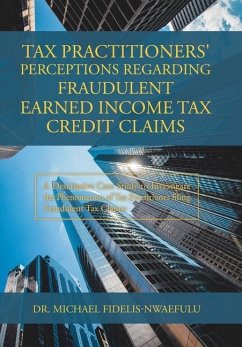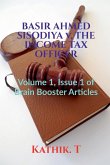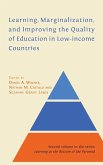This descriptive case study investigated the phenomenon of tax practitioner filing fraudulent earned income tax credit claims on behalf of a client. The study took place in Dallas/Fort Worth metropolitan area in Texas in the United States and thirty tax practitioners in the Dallas/Fort Worth area in Texas, were recruited in a non-probability purposeful sampling technique. Eighteen professional tax preparers with an average age of 50.5 years and tax practitioner experience of 11.05 years were interviewed face-to-face, in a one-on-one setting within the Dallas/Fort Worth metropolitan area were necessary to reach data saturation. Half of the participants were females and all participants had college degrees. The research explored paid tax practitioners' perception regarding fraudulent earned income tax credit claims (EITC). The following categories were determined: practitioners have EITC rules about compliance and due-diligence, knowledge and training of EITC due-diligence program are vital elements for successful program, workplace culture is influenced by external environment factor, and tax practitioners' decision-making choices influence taxpayer behavior. This result of this study may inform stakeholders of behavioral factors that might be necessary to improve EITC claims compliance among all stakeholders.
Hinweis: Dieser Artikel kann nur an eine deutsche Lieferadresse ausgeliefert werden.
Hinweis: Dieser Artikel kann nur an eine deutsche Lieferadresse ausgeliefert werden.








